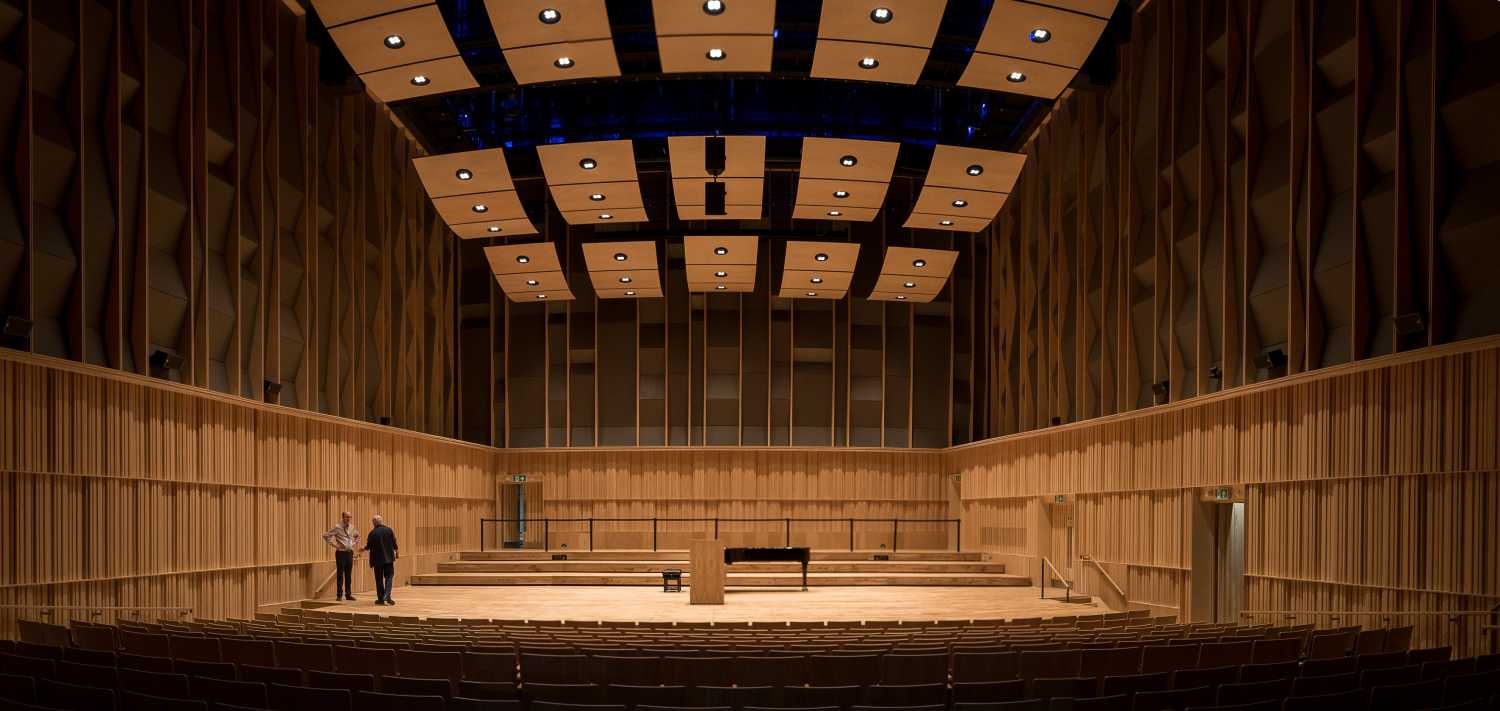SSL at heart of Birmingham Conservatoire
- Details

With a history dating back to 1859, Birmingham Conservatoire is one of the leading music and drama academies in the UK. Part of Birmingham City University, the development boasts five new public performance spaces, which include a 500-seat concert hall, a 150-seat recital hall, and a 100-seat organ studio. It also includes The Lab, a cutting edge, completely flexible black-box studio, the first permanent jazz space in any UK conservatoire (the 80-seat Eastside Jazz Club), private rehearsal rooms, dedicated teaching spaces for musicians, and more than 70 teaching practice rooms.
Music Technology was introduced to the Conservatoire in 2001 and now the department offers BMus (Bachelor of Music), BSc (Bachelor of Science) degrees as well as postgraduate courses.
There are four main live performance spaces in the Conservatoire. The 500-seat Concert Hall is equipped with an SSL L500 live console, while the small Recital Hall, Eastside Jazz Club, and The Lab each have SSL L300 live consoles. From the stages and performance spaces, the consoles are fed by SSL ML32.32 Stageboxes and redundant Blacklight II connections via the SSL Blacklight II MADI Concentrator, with additional connections to the facility-wide Dante network, and MADI, Optocore, and analogue infrastructures.
The Conservatoire's new Studioplex is a group of recording and production facilities that fulfil many functions, from turning the Concert Hall into a world-class ensemble recording space, to contemporary production, and Music Technology course training.
There is a 48-channel SSL Duality δelta console in the Concert Hall control room, 24 channel Duality δelta consoles in the Recital Hall and Studio 1 control rooms, plus SSL AWS 948 δelta consoles in the Studio 2 and Studio 3 control rooms. The Studio 1 control room has its own live recording space, and the two AWS control rooms both address an additional shared live recording space, allowing both control rooms to be in use at the same time, either on different projects or in ‘tandem’ teaching sessions, for example.
Dr Simon Hall is the head of music technology at the Conservatoire and has been an integral part of the decision making for the recording and live production facilities. Establishing a close partnership with SSL was an important step in the process. “Originally, we did consider putting a variety of different manufacturers’ consoles around the facility,” he notes. “But for a variety of reasons we went with SSL for everything.
“We had a good look around in the commercial world and realised that, unless there’s a real passion for a particular brand, pretty much every serious room has an SSL console in it – especially in the UK and Europe. Of course, the fact that SSL HQ is only an hour’s drive from the Conservatoire was also a big selling point for us - but in any case, SSL has an extremely responsive, reliable support team, which is important.”
Hall points out that the Conservatoire has a good variety of outboard input options for the studios, though the VHD (Variable Harmonic Drive) pre-amps on the Duality consoles themselves offer a wide range of input character. “That’s something I love about the Duality – you do have lots of timbral control on the way in… Having VHD on every Duality channel is fantastic… Even in a Jazz context if you want just a bit more crunch on a kick or a snare you can get that pretty easily.
“They are calling us ‘the digital conservatoire…’ but what we’re really trying to do is cement very high-quality audio into the curriculum - into everything we do. The partnership with SSL is helping us achieve that.”
(Jim Evans)













